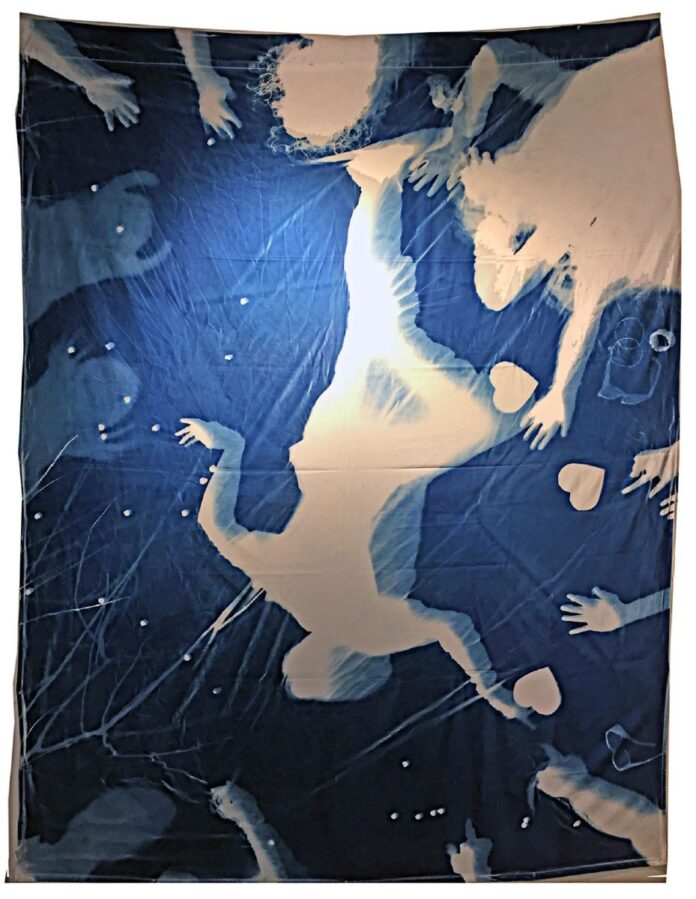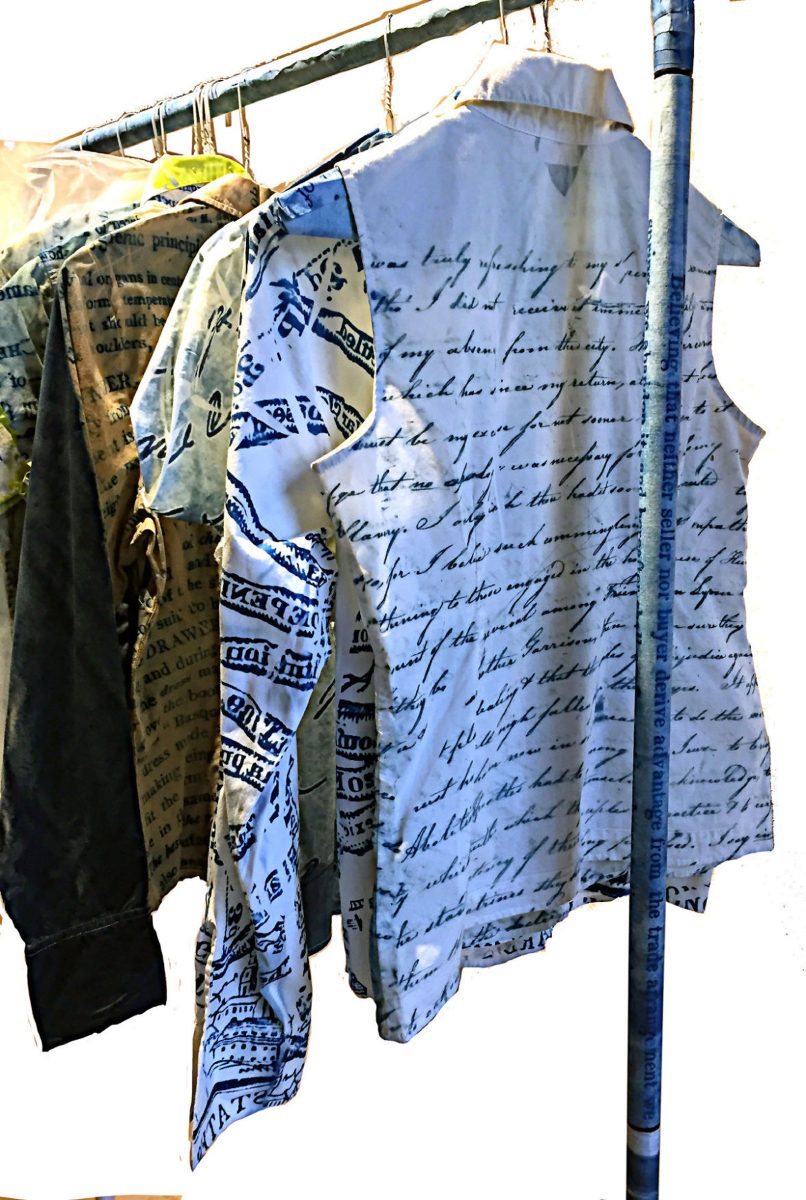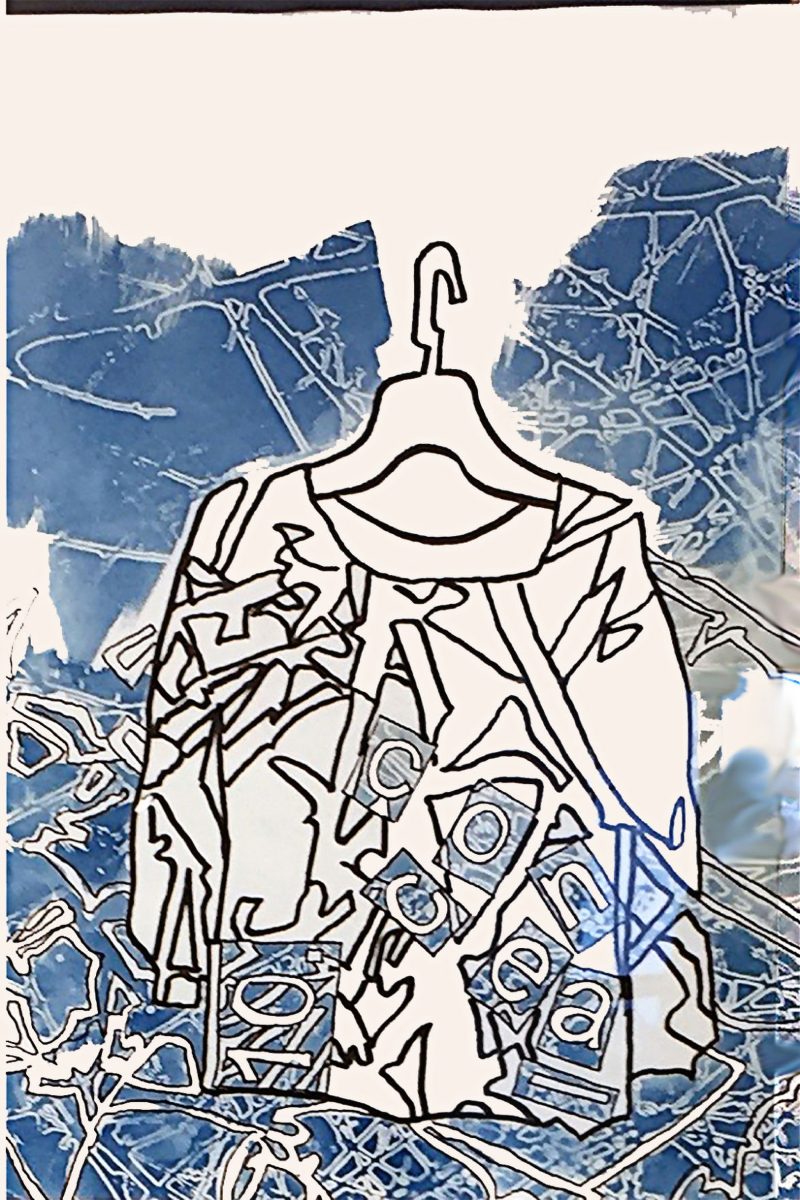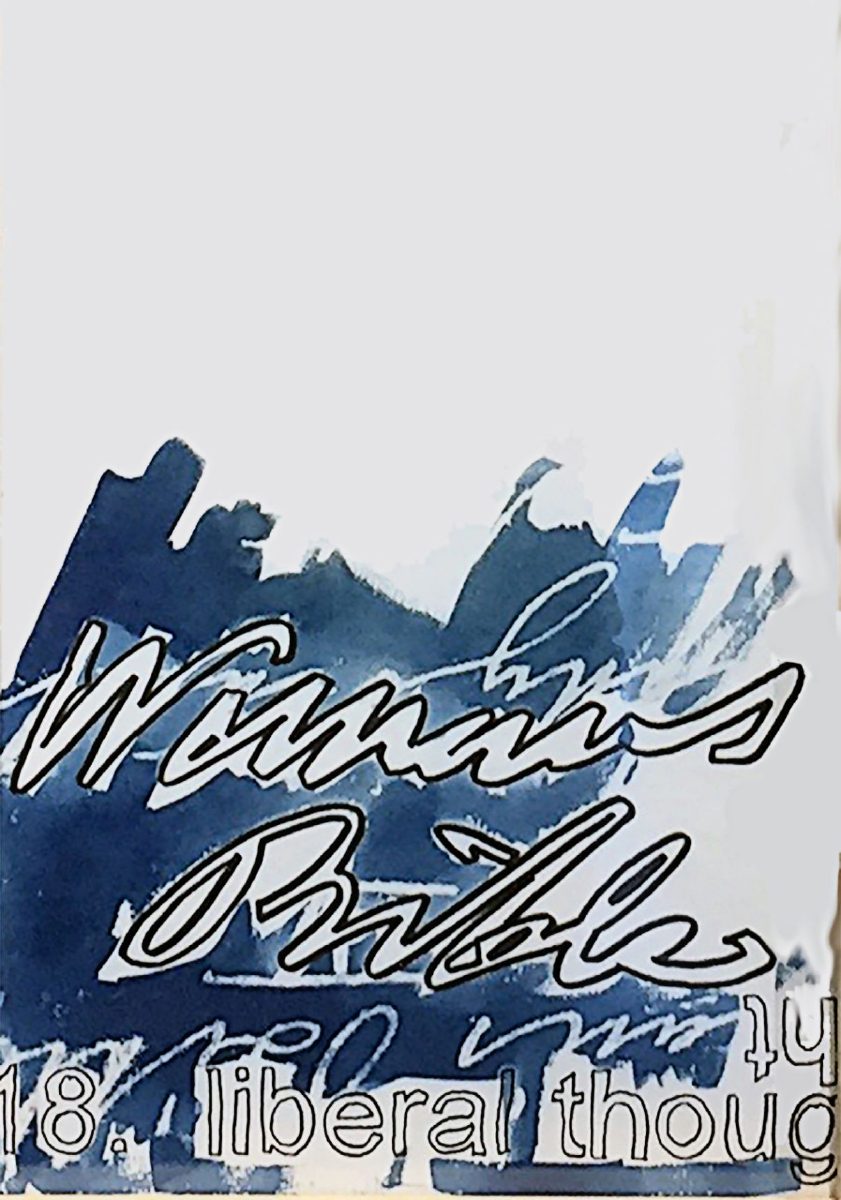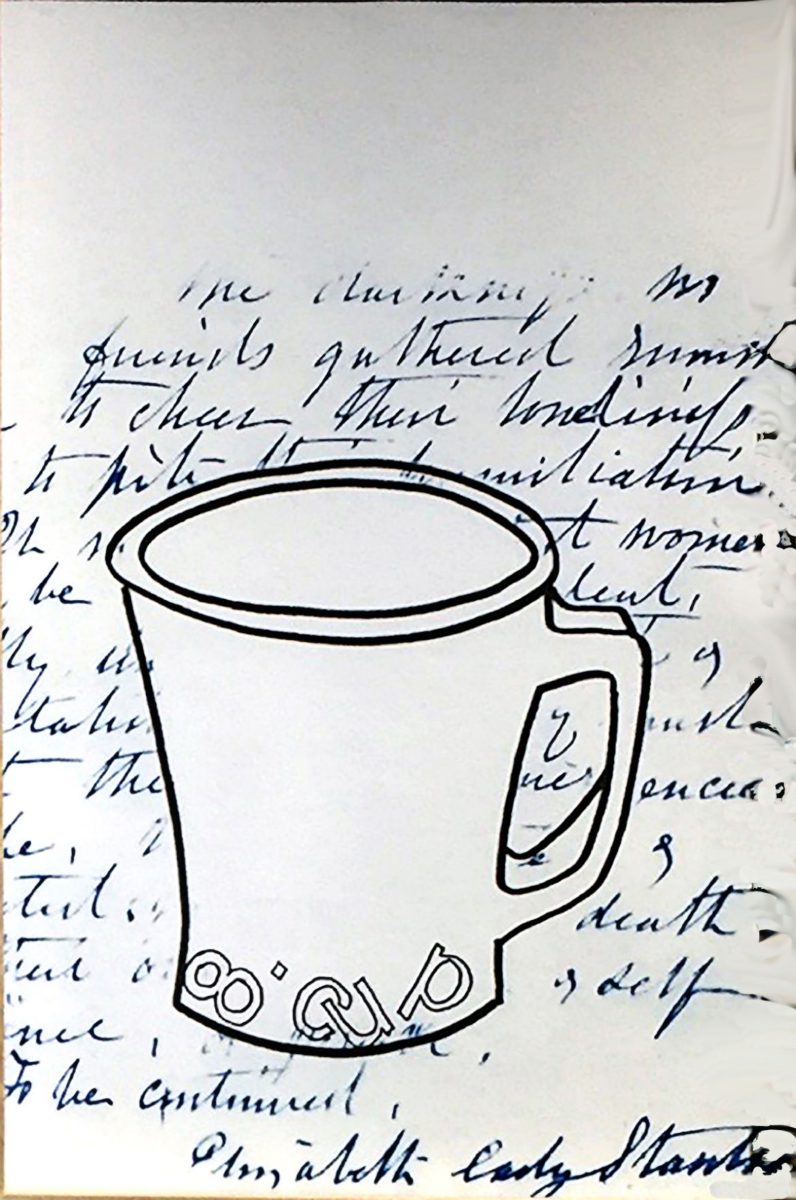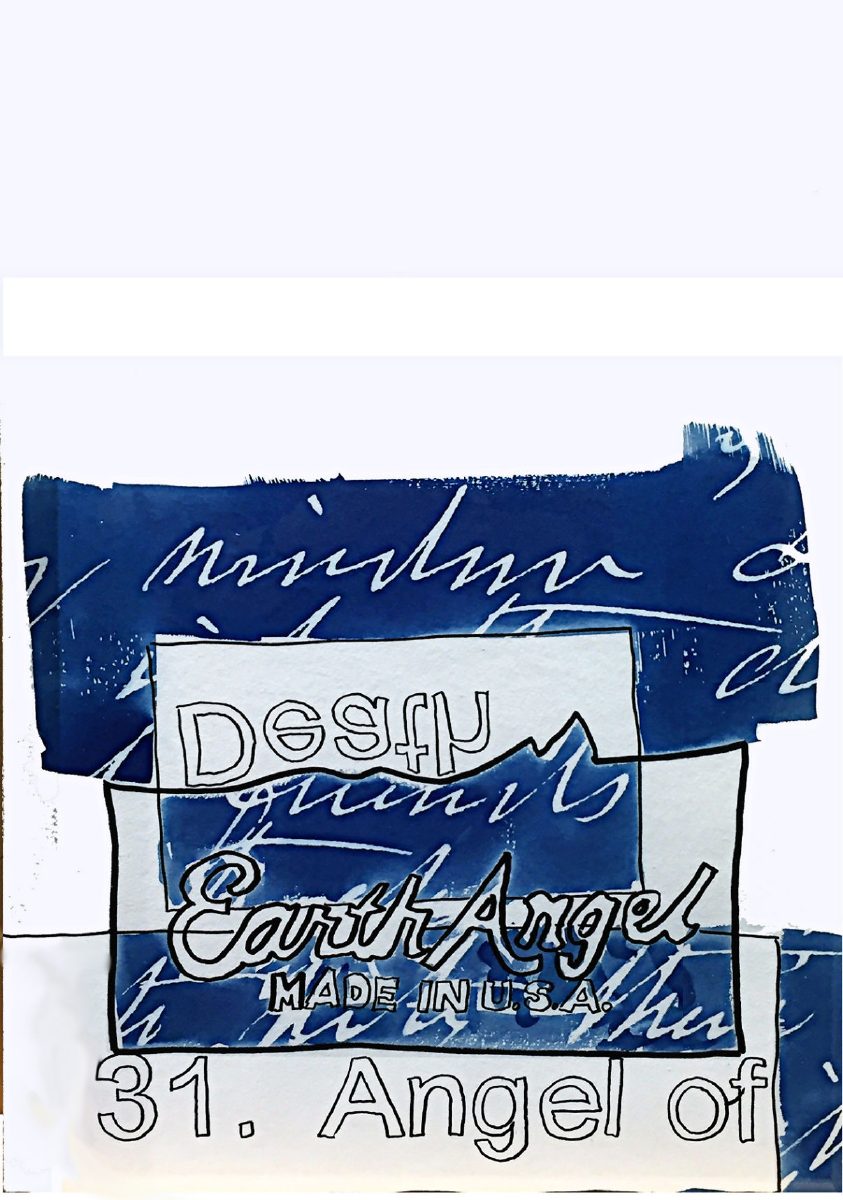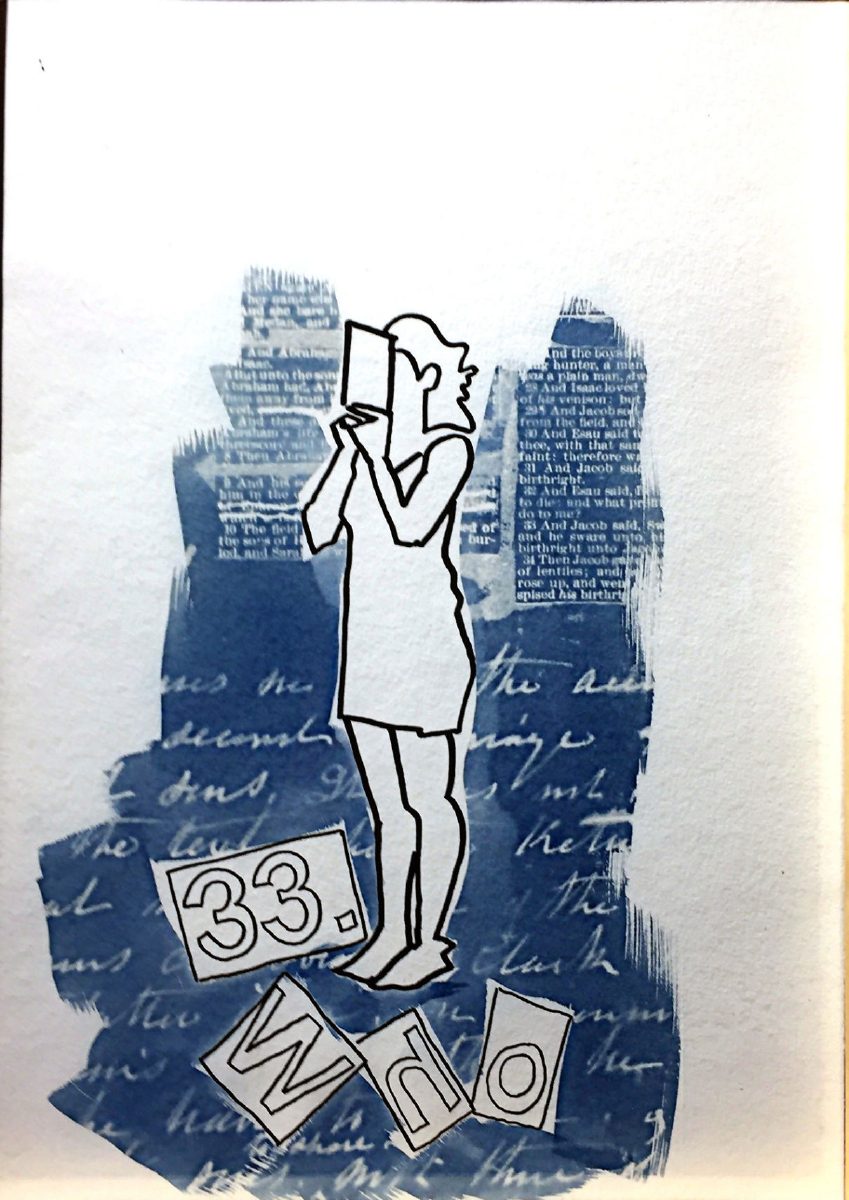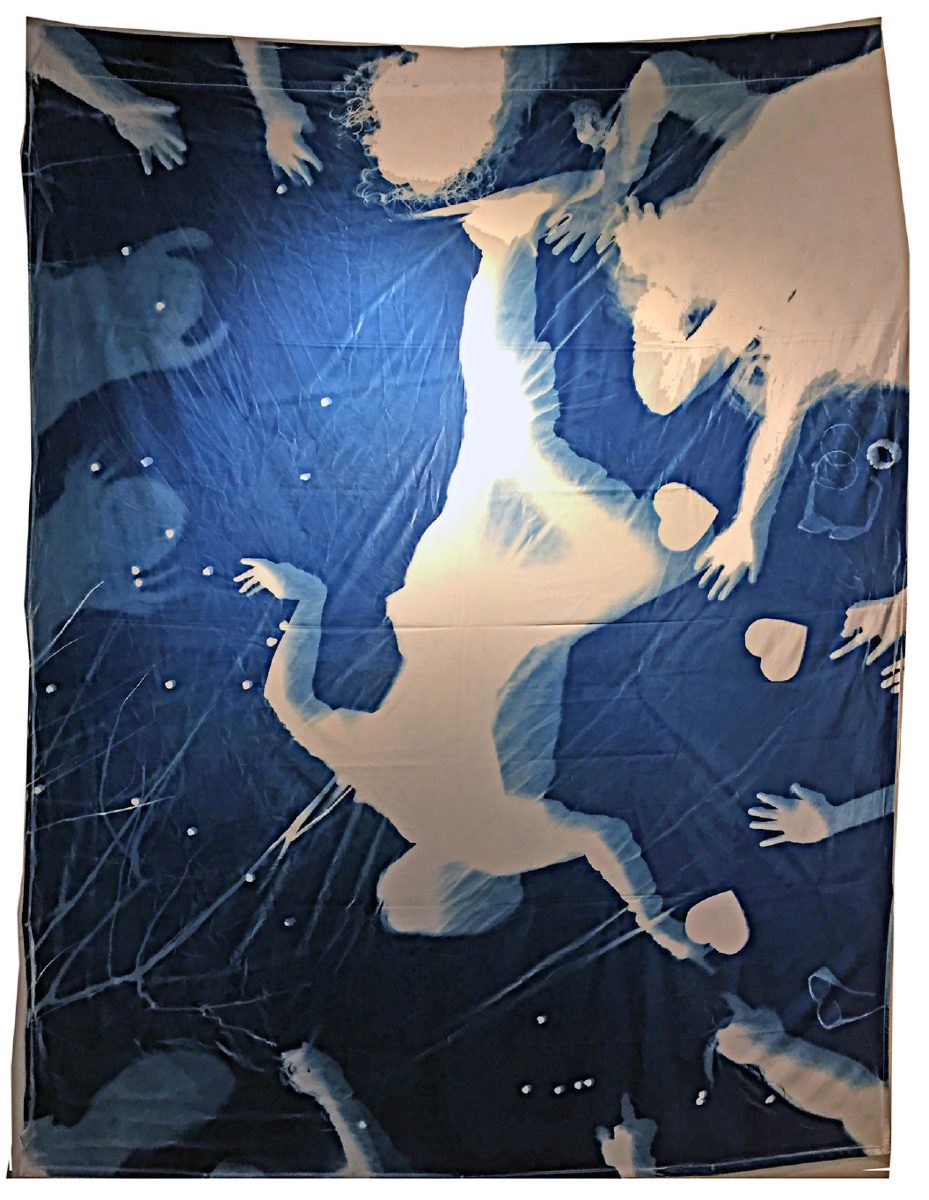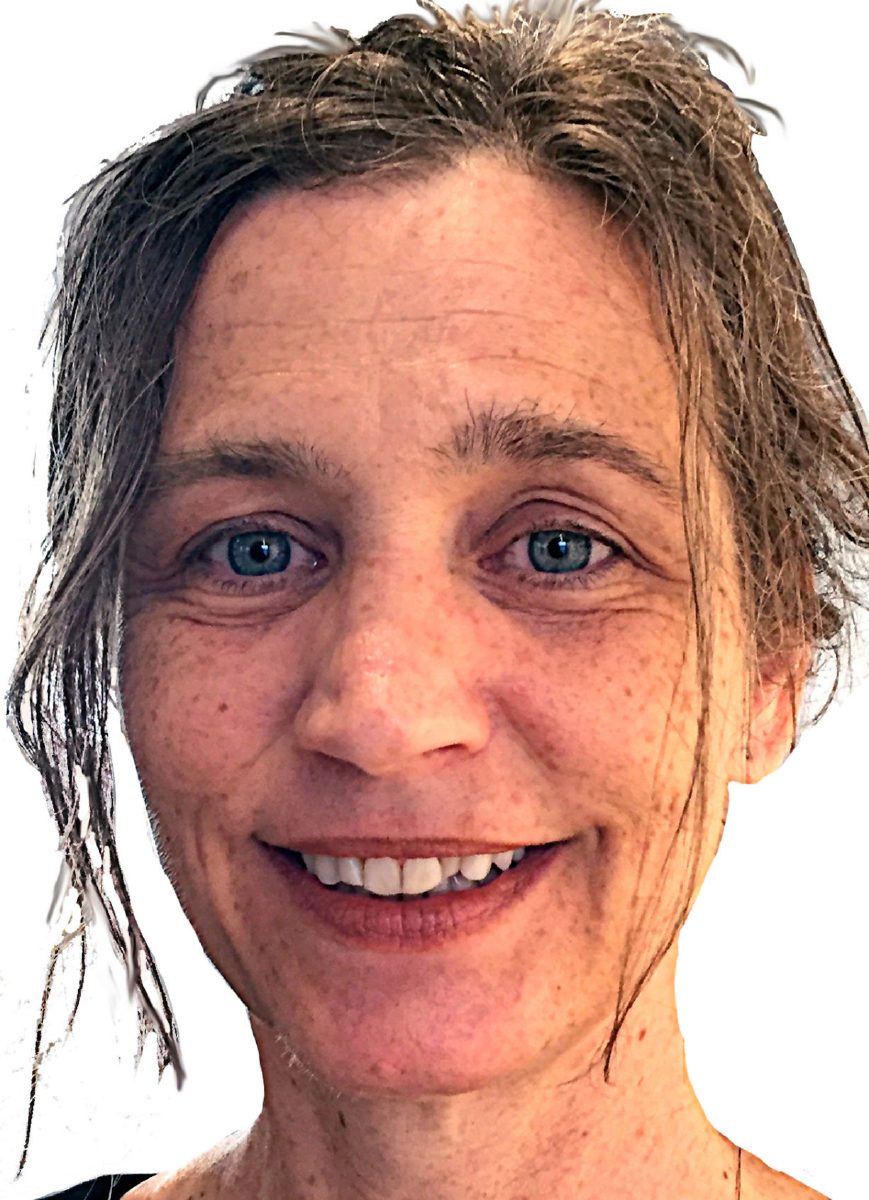BY NANCY MOYER
“Solitude of Selfie” is either a whimsical engagement with women’s suffragist Elizabeth Cady Stanton’s essay, “Solitude of Self,” or a deeply conceptual reinterpretation of the writer’s philosophy. We can entertain both viewpoints.
Carol Flueckiger, an associate professor of art from Texas Tech, assembled an exhibit at South Texas College’s upstairs library gallery she refers to as three situations — “Solitude of Selfie,” “Cash Paid for Rags,” and cyanotype photogram murals, a photographic printing process that produces a blue print.
All three utilize her technique of solar painting, which defines this exhibition. Flueckiger coats a paper or cloth surface with a cyanotype photographic chemical that inherently has a blue tint and then exposes it to the sun. Using additional transparencies, Stanton’s original handwriting appears in many of the works.
“I live on the world’s largest light table,” she said. “My paintbrush is the sun; my subject is energy.”
The “Solitude of Selfie” section draws us in with its bold black line drawings splashed with blue, anchoring this exhibit with inspiration taken from the 19th century essay by Stanton, who was an American suffragist and social activist. A feminist herself, Flueckiger wanted to make Stanton’s pivotal essay on women’s suffrage more accessible to the contemporary sensibility.
In 1892, “The Solitude of Self,” Stanton’s retirement/resignation speech as president of the National Woman Suffrage Association, eloquently articulated the arguments for the equality of women. Choosing to illustrate this 33-paragraph essay, Flueckiger selected one word from each paragraph for each drawing. While this may seem whimsical, Flueckiger’s individual word choices reflected Stanton’s philosophical premise that individuals are entitled to equality because they function in profound solitude one from another. As do words. Each word becomes a symbol for individual independence and importance.
In order to identify the source of each word, all drawings contain a paragraph number, the word from the paragraph, and a picture. In discussing her choices, Flueckiger explained that she has some really uplifting words along with some challenging words. She also has neutral words like cup.
“Drawing 8 is a cup,” she said, “because I knew I had a drawing of a cup. The images come from my collection of illustrations over the years. The ‘Selfie’ title brings it into the present.”
Relating to the 19th century custom of re-using practically everything due to limited resources at every level, the “Cash Paid for Rags” clothing concept goes beyond obvious textile printing and connects the centuries; 19th century “re-use” becomes 21st century “re-cycle.”
Maintain and mend was the rule in America and Europe throughout their histories. Until the Industrial Revolution, a “ragman” collected old cloth and clothing for paper mills, then wood pulp succeeded rags as a paper source. Reflecting back on this labor-intensive process, Flueckiger thought “that rather than wait for the paper, why not print directly on the cloth?” She dipped re-cycled, thrift-store clothing into her chemical printing solution, a transparency was laid on top, and solar painted garments were created.
The third situation, solar painted murals on what appear to be bed sheets, consists of collaborative photo-grams done with her students. Figures, twigs, a bicycle — all suggest pale, ghostly shapes against the rich blue ground. Images and objects from one situation often repeat in another, weaving the works in this show into a close visual relationship beyond their distinct forms. Flueckiger has given us a relevant collection that can be appreciated on several levels — all of them good.
Nancy Moyer, Professor Emerita of Art at the University of Texas Rio Grande Valley is an art critic for The Monitor. She may be reached at [email protected].
SURFACE TREATMENT
“Carol Flueckiger: Solitude of Selfie”
Where: STC Library Art Galleries, Bldg. F, 3201 W. Pecan Blvd.
When: Through May 30
Hours: 7 a.m. to 9:30 p.m. Monday to Thursday; 8 a.m. to 7 p.m. Friday
Info: (956) 872-3488

